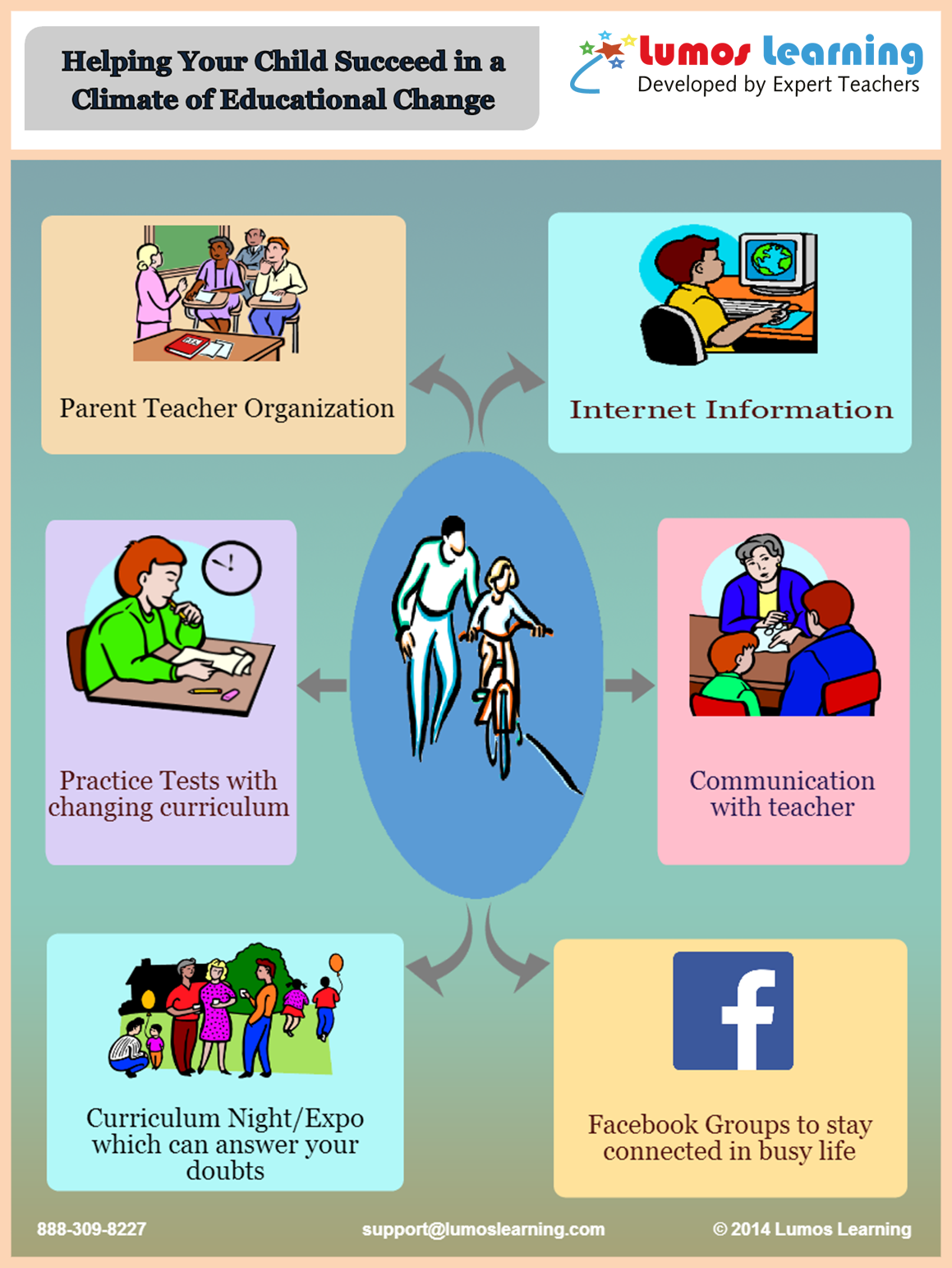Return To Teachers Speak
With the introduction of the Common Core Standards, school districts across the country have had to adjust their curriculum, testing procedures, and teaching methodologies. With change comes uncertainty, and the stress of the unknown carries with it the potential to affect all involved parties… including students.

As a parent, you may sense the differences – especially if you have more than one child who has gone through the same school. You may have noticed that even with the same teacher, requirements and expectations may have shifted over the past few years in response to the Common Core. Though these changes, left unchecked, can create stress for teachers and students alike, there are ways that you, as a parent, can help your child navigate any potential challenges as she or he faces more rigorous assignments, expectations, and criteria.
First and foremost, it’s imperative to listen to your child. As with all aspects of parenting, understanding where your child is coming from may help head off many potential problems. Anxieties about school are no different. No matter the age, keep close tabs on assignments, tests, and projects – and more importantly, monitor your child’s feelings about his or her schoolwork. Even straight-A students may feel the stress of change, and if you’re sensitive to your child’s needs, you can better respond with compassion and love.
PARCC Test Practice: Online Resources for Your Children
In addition to listening, being informed is another powerful way to help your child. If you know what’s happening at school and with coursework, you can answer your child’s questions, help him or her with schoolwork, and simply keep the lines of communication open between home and school.
Many school districts are doing a tremendous job of keeping parents in the loop, and with some quick searching, you’ll be able to find out what your school and community have to offer in the way of information. Check out the following list for ideas of how you can be better informed:
Parent Teacher Organizations. Perhaps one of most well established links between home and school, a Parent-Teacher Organization (PTO, PTA, etc.) is an excellent place to ask questions and be “in the know”. Many times, principals and teacher liaisons attend these meetings to provide additional information and insight about what is happening at your child’s school.
Teacher Communication. Remember to call, email and meet with your child’s teacher – and not just when problems arise. Attend conferences and back to school nights to find out more about the curriculum, assignments, and any tips the teacher may have to help your child. Remember, teachers spend the majority of the daytime hours with your child and they get to know each student very well during the year. They are one of the best resources for ideas on how to best meet your child’s individual needs.
Curriculum Nights. Some school districts are offering curriculum expos or informational nights for parents to explain curricular changes and answer parents’ questions. This is yet another way to keep abreast of changes and shifts from past practice.
Facebook Groups. Some schools and communities have started Facebook groups to post community/school information, ask questions, and comment on school happenings. This is a wonderful way to stay connected – especially for busy parents who can’t always attend activities and events in person due to scheduling conflicts.
Practice Tests. With changes in curriculum come changes in assessments. You can help take the stress out of the new standardized tests by giving your child practice books and problems to work on beforehand. And since the first wave of these “new” tests (PARCC and SMARTER balanced tests) won’t surface until the 2014-15 school year, you can optimize time in the summer to practice. Many practice booklets reflect the new testing formats and parameters, so the more familiar your child becomes with these changes, the more confident he or she will be.
Internet Information. The Internet is bursting with information, and between your school district’s website, your state’s department of education site, and sites like Lumos Learning (with many blog posts, webinars, and resources), you can easily acclimate yourself to these educational changes and know what to expect.
Clearly, being informed is one of the best ways to assist your child. With knowledge comes power, and the more you know, the more easily you can anticipate areas where your child may struggle. An added benefit is that the more you learn about the changes, the more you’ll realize that many aspects of the school day won’t change, and this level of comfort and familiarity will help you and your child relax . . . even amidst the sometimes turbulent sea of educational change.
For further information, visit:
www.corestandards.org
www.smarterbalanced.org
www.parcconline.org
www.ed.gov/k-12reforms/standards





Pingback: Helping Your Child Succeed in a Climate of Educational Change | Think Educative